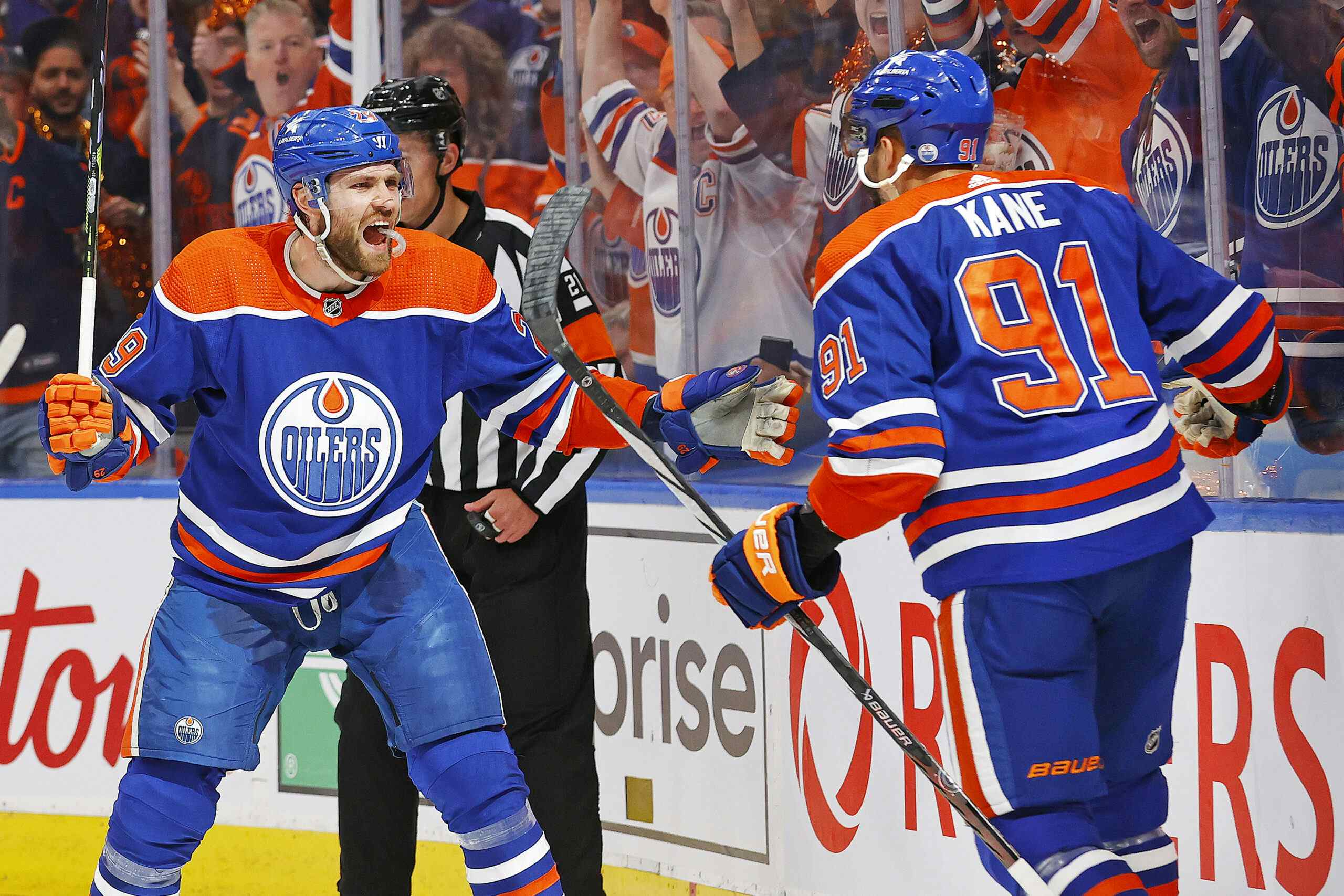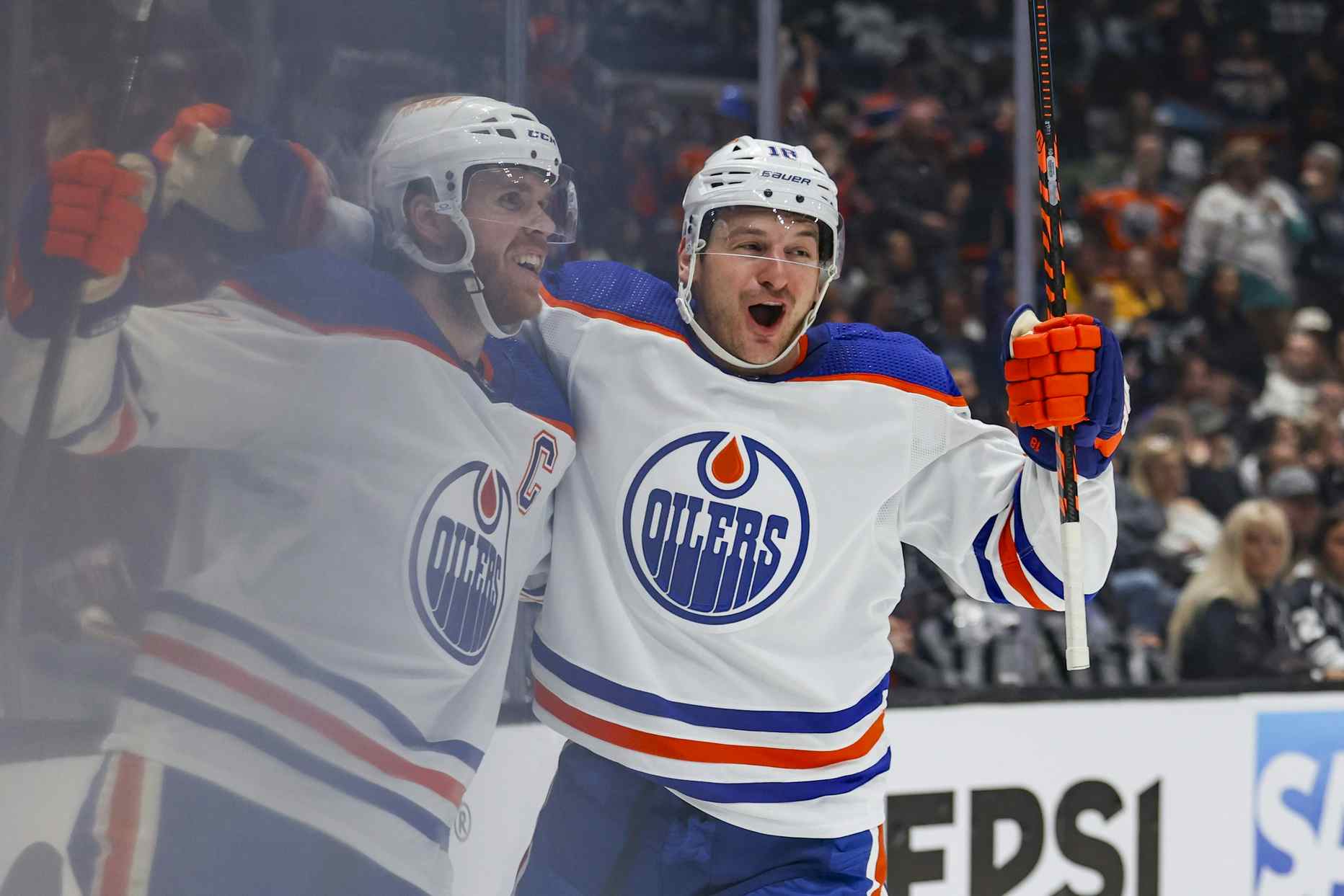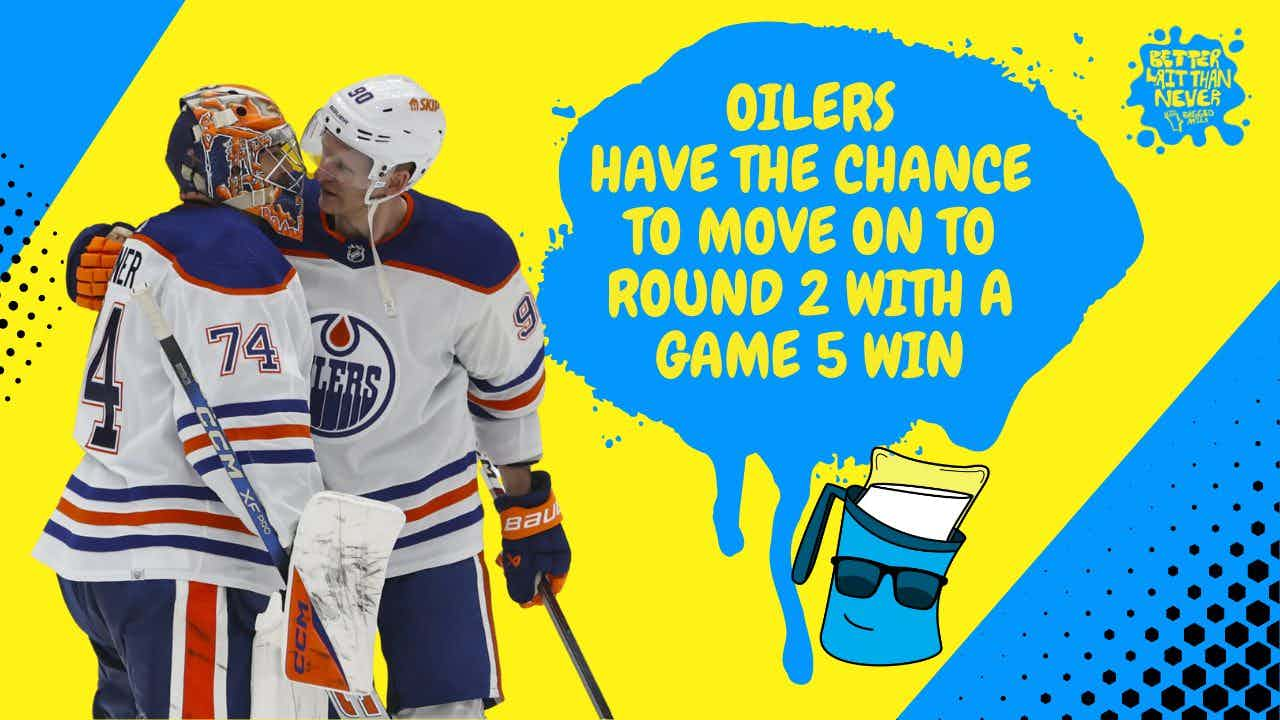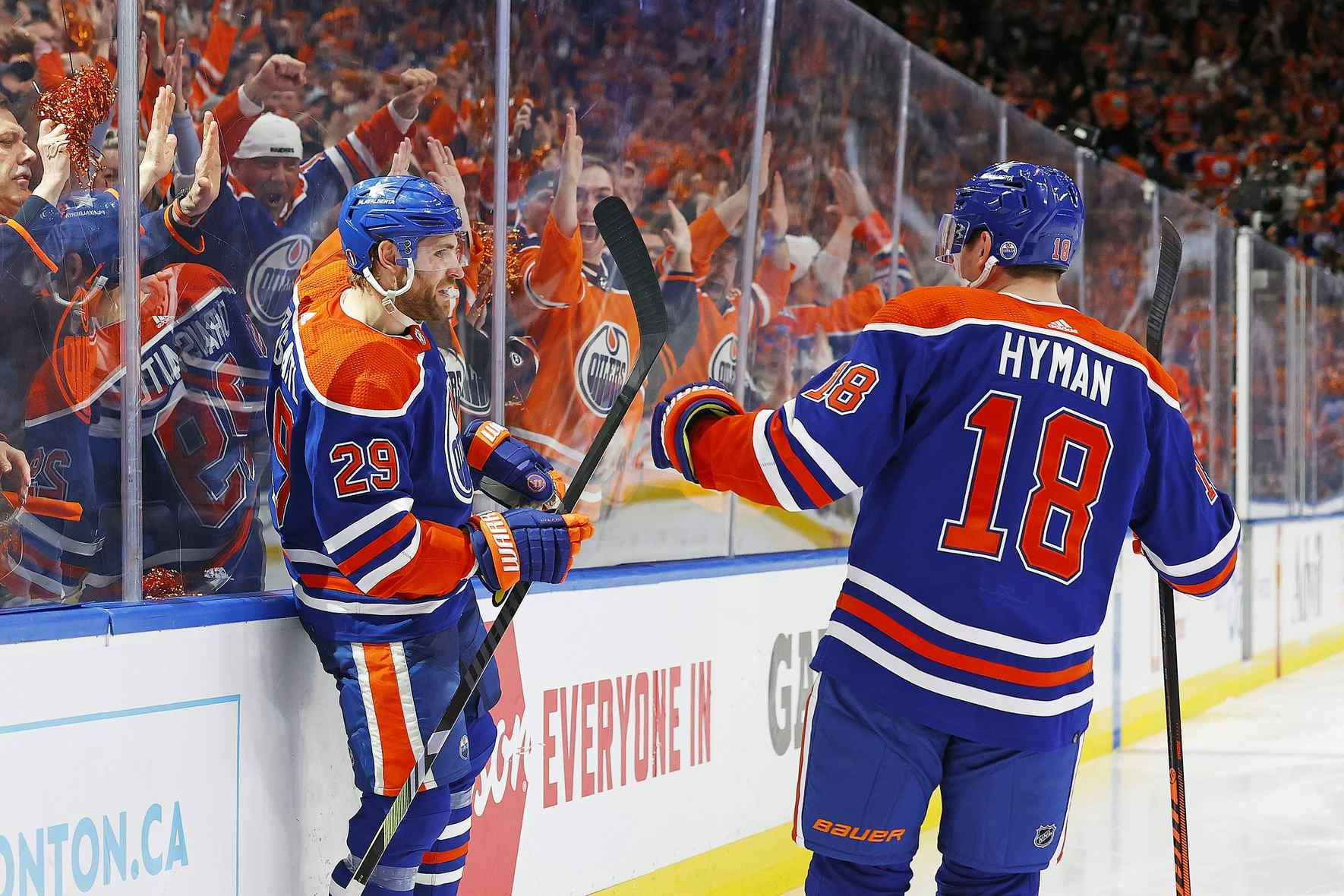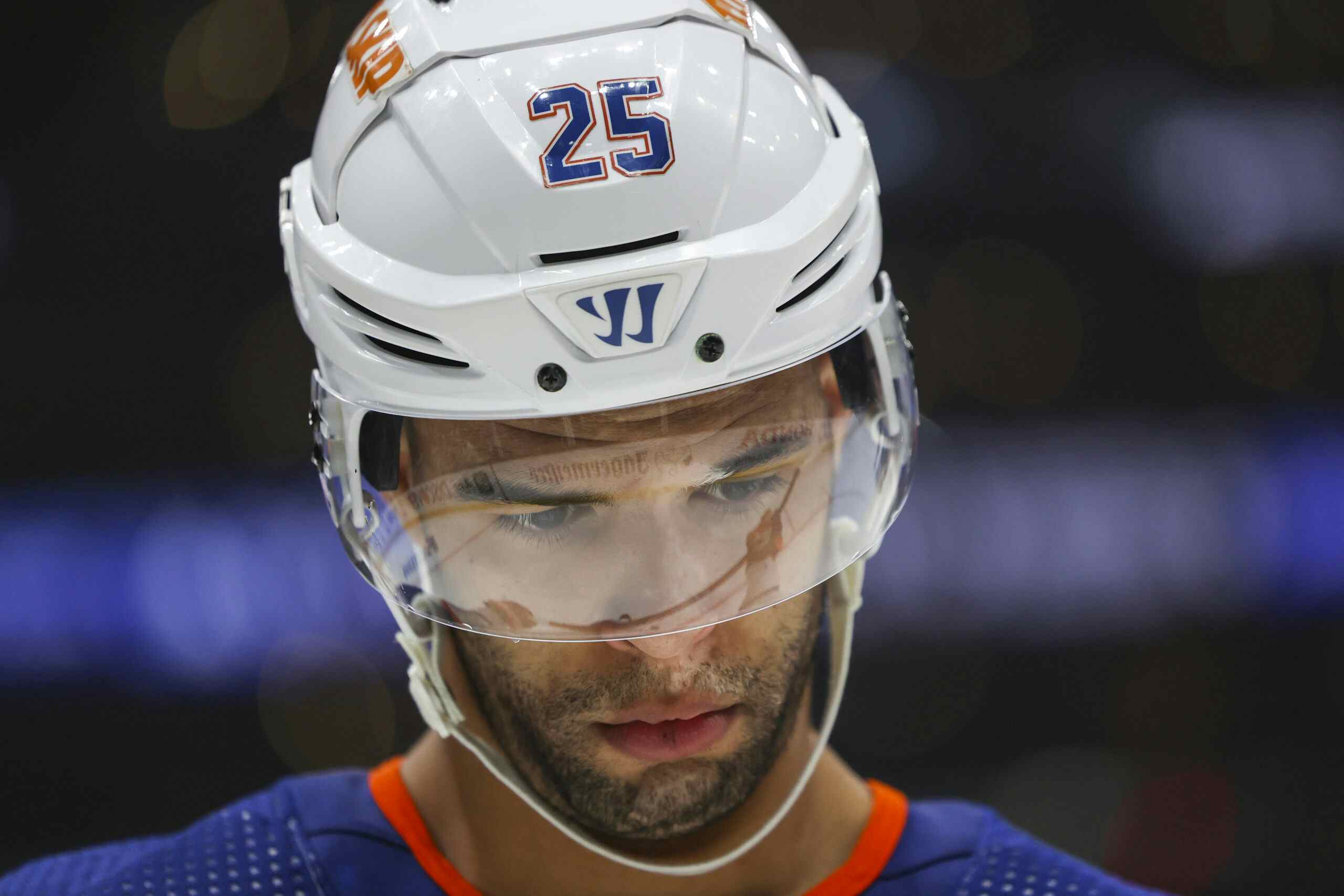WILL FERENCE BE THE LEADER?
By Jason Gregor
10 years ago
In the summer of 2001 I met Andrew Ference for the first time. I was working with John Short and Ference had agreed to come down to Northlands and be a guest on Short’s show. Ference walked up to our table dressed completely in leather. He’d just turned 22 and finished his 2nd season of pro hockey. He started the season with Wilkes-Barre/Scranton in the AHL, but he finished the year playing 36 games with the Penguins and another 18 in the playoffs.
Life was good for the hockey player who loved riding his Harley.
Since that interview Ference has carved out a pretty good career. He’s been to three Stanley Cup finals, winning with the Bruins in 2011, while losing last month and in 2004 as a member of the Flames.
Since that interview Ference has carved out a pretty good career. He’s been to three Stanley Cup finals, winning with the Bruins in 2011, while losing last month and in 2004 as a member of the Flames.
The 208th pick in the 1997 draft has beaten the odds to play 760 regular season games and another 120 in the playoffs. I spoke with Ference on my radio show on Friday and here’s what he had to say about coming home to play, winning and leadership.
Jason Gregor: I remember the first time that I met you. You strolled in for the interview covered head to toe in leather. It was quite the outfit.
Andrew Ference: I remember coming down there.
Gregor: Are you still a big Harley guy?
Ference: I am, but you assume I was riding my motorbike, maybe I just wear pretty much leather all of the time. (laughs) I’m actually not riding too much now; those were before kid years so now I have two little girls who keep me busy.
Gregor: I saw you tweet out a picture of yourself as a young boy in an Oilers’ jersey when you signed with the Oilers. Outside of winning the Stanley Cup, was signing for your home town team one of the biggest days of your career?
Ference: It sure is, it’s really exciting it really is. I didn’t know what to expect going into free agency, I’d never gone before. I didn’t really know what the process was going to be like but obviously as soon as Edmonton popped up on the radar, it got me really excited. Not only because of my history there, obviously growing up there and the family that I still have in the area, friends that have never been able to wholeheartedly cheer for me on any other team, it’s exciting in that, but most of it is with what they (Oilers) had. I mean it was a two day process where I got to talk to the coaches and management and really get a feel for the attitude they want on the club and all of those things together. That’s why I’m excited today, there’s just so many checkmarks in the pro column.
Gregor: When they talked about the direction of the team, did they talk about you coming in and being a leader? You’ve been in the Stanley Cup final two out of the last three years; I think that you know how hard you need to work every night to win. Are you going to be called upon to be that vocal guy, maybe challenge your teammates to assure that they’re doing what it takes to be successful in the NHL?
Ference: Well if I’ve learned anything the past few years in Boston it’s that teams works really well when there is responsibility on everyone, everyone is accountable and everybody does their part.
There are different personalities in the locker room and definitely mine has been one that has been more vocal in the past, but at the same token, it’s just about being you and a lot of that different stuff comes naturally to me. I feel comfortable in that kind of position, but it’s a difficult thing to explain to somebody how it works.
You try to create an attitude in the room and an environment where people can perform their best. It’s like an energy, it is constant work, and constantly staying on top of it. At the end of the day, it’s not about yelling and screaming and doing all of these kinds of things, it’s about being accountable and everyone pitching in and doing their job and having a really good work environment where you can get the most out of people. It works differently in every room with the different characters, but I’ll definitely bring things that I’ve seen work first hand whether it be in Calgary or Boston or back in Pittsburgh.
Gregor: How many other teams were knocking at your door?
Ference: There were a few options, like I said, I wasn’t really sure what to expect. I really tried to keep it out of my mind throughout the playoffs and for most of the season. I knew that there was a good chance that Bruins wouldn’t be re-signing me so I went in with a fresh mind on the options and going through things with my wife once things started.
We definitely had to make a list of the different cities and pros and cons and every city had a different level of interest as well so that definitely weighed in. The Oilers were very awesome with the way that they handled this whole period where I got a chance to talk to Dallas [Eakins] and MacT a lot and get a really good feel for what they were all about. That meant a lot to me, so it wasn’t really deciding between different options but I think that the final choice was in my gut right away. I think that once I started talking to the guys, I told my wife earlier that I think that my gut instinct was telling me that this is what we were doing.
LEFT OR RIGHT D?

Gregor: You shoot left, but are you comfortable playing both sides, or do you prefer left defence over right?
Ference: I’ve played everywhere over the past few years. Here in Boston you play with different partners and different sides most of the game and rotate between left and right but over the course of my career both left and right for sure.
Gregor: Is there one that you’re more comfortable with?
Ference: Yeah, you just do what the coach is telling you [laughs]. That’s about where I’m at, I don’t know, there are pros and cons to either side, but at this point I just do what is in the best interest of the team.
Gregor: Outside of hockey, you really became involved in the community in Boston. How important do you think that is and how do you ensure that other guys in the team recognize how fortunate you are to be NHL players and how important it is to give back to the community that you play in?
Ference: I mean it went into my decision making for sure, I’ve been lucky enough. I started in Pittsburgh with Mario [Lemieux] and Jags [Jaromir Jagr] and all of these great players there and the city was fired up about hockey. I was lucky enough to go to Calgary and Boston where people are really passionate about hockey and I wanted to continue that. It’s a good feeling to play in a community that cares.
It might be kind of a romantic view, but I really think that is important, sport is more than just entertainment. It does play a role in the city that you’re in and you have to show the city that it does come with responsibility.
With all things the years that we’ve been down here in Boston with the stuff in Newton and obviously with the marathon, sports plays a big role in bringing people together and moving on and trying to heal some of the wounds that remain. That’s obviously an extreme example but for me when you play somewhere, you have to dive in and be in all in. And that means not only with the team but it means with the city. I think that you get more out of yourself and out of your team when you do that because it’s just part of the full commitment that players and teams need to be successful.
Gregor: You’ve been on the perennial cup favourite team the past few years, while the Oilers haven’t been in the playoffs sincee 2006. How do you ensure your mindset doesn’t change from going in every night thinking ‘hey we’re going to win tonight’ to one that "I hope we win.". Can you translate that winning belief around the dressing room?
Ference: Even when you’re on a team that has won in the past; nothing is a guarantee in this league. When you win and have success I think that you learn even more how small that line is between successful teams and teams that are struggling; it’s extremely small.
We’ve had some spectacular losses here in a Boston and you learn why that happens and what you let slip. So I think that when people talk about Boston being a contender and all of the experience that guys have, well going back six years when a lot of us started on here, it wasn’t a good experience on our team. It took a hell of a lot of hard work and a lot of commitment to turn us into what we’ve become over the past few years.
I think that you learn a lot of lessons from doing that as a group, and it takes a lot of moving parts. It takes a lot of commitment from the individual players and like I’ve said, you can turn fortunes around very quickly in this league with changes in attitude, changes in the way that you approach how you view yourself as a team and starting to create an identity. So I think that when you can be a part of that, and we can build towards that, it’s a great feeling when you start to see that success. As exciting as that feeling is of having done it and having felt how great it feels to have a city feel proud of the product on the ice, that’s more than enough motivation to look to having it happen again.
Gregor: What were your thoughts on all of the stories coming out of Boston after Tyler Seguin got traded?
Ference: Well a lot of them were news to me. So like anything out there, I think that you take it with a huge grain of salt. He’s a kid; he had fun around town obviously, and sometimes it showed maybe a little too much, but to be honest with you, maybe I had my head totally in the sand or a lot of the stuff is highly exaggerated, I don’t know which one it is. He’s the kind of kid that has just an untapped amount of talent, and he could turn into an amazing player.
Like I just finished in my last couple of questions, you have to be fully committed in this league to have success not only as an individual, but as a team. The separation between teams is small, but that separation between a player having a lengthy career and fizzling out, those are also pretty small. You can’t come in and just dip your toes into this league and be half in it.
Gregor: You’re 34 years old while many of the Oilers key young guys are 20-23years of age. As a leader of a team do you have to remember how you were at that age so you don’t expect those guys to just grow up and mature right away?
Ference: Oh without a doubt, I mean it’s a learning process and it takes everyone different amounts of time. You have young guys that are so mature and have their business together better than some of the guys who are my age or closer to my age. Some of the guys are on a different pace and everyone has a different personality, you can’t just expect everybody to be the same. And actually to the contrary I think that people operate better when they are allowed to be themselves.
But in saying that, I think that if you are a guy that is loose and likes to have fun, that’s great, but it has to be in a team first context. I’ve had a lot of time here in Boston where there is a group of us that have created an atmosphere where there’s old guys and young guys and we’ve had guys like [Mark] Recchi and Jagr come into our team, and everybody had the same expectations. Whether you were old or young, you were expected to commit to the team, you were expected to have input. It wasn’t just the old guys that were expected to stand up and say something in the room, it was the young guys as well, it was expected of them.
We all have an equal share once you get on the ice and start playing. We all have equal part on the turnout of the game. If you can get that kind of atmosphere, if you can get that kind of environment, age becomes somewhat irrelevant. Getting your teammates working towards the same goal is obviously way more important.
Gregor: I had an Eastern Conference player describe you like this in a text. He wrote “He’s not the most naturally talented player, but he’s incredibly hard to play against. He’s always in your face.” Talk about playing hard rather than playing physical, how is it different?
Ference: Well I think that when you’re my size you can’t just run around and physically bowl guys over. There is a lot to be said for guys that just don’t give up, guys that have a consistent work ethic. I see guys around the league and I know who is hard to play against, the guys that I hate playing against. They’re the guys that just don’t stop and they never leave you alone and they never give you any room to operate.
If they lose the puck they’re right back on you trying to get it back. To me that is what heart is, it’s guys that will do anything they can. They’re not perfect, and they’ll make mistakes, but those guys that work just as hard to cover up their mistakes, or a teammate’s mistakes, those are the guys who have long careers in this league.
PARTING SHOTS…
- Ference isn’t afraid to speak his mind and the Oilers need a guy like that. He’s proven he understands how competitive you need to be to win every night, and his biggest asset might be that he becomes the Lee Fogolin of this group. Fogolin was the savvy veteran who showed Gretzky et all how to be professionals. He didn’t have their skill level, but he taught them to be pros. Ference’s biggest contribution to the Oilers will come in the form of a leader and mentor, and not strictly how he performs on the ice.
- Boyd Gordon might be better suited as the Oilers #3 centre than some think. Read here.
- The Oilers re-signed Ryan Jones to a one-year deal over the weekend. He’ll make $1.5 million which is a good deal for the Oilers. Last year was virtually a wasted season for Jones. He suffered an eye injury a few weeks before camp started, and they injury didn’t allow him to skate or workout for five weeks. When he was finally cleared to train his cardio and strength were weeks behind. He spent the entire year playing catch up. He’s in good shape now and he’s determined to prove he can score 15-17 goals and be a factor amongst the Oilers’ bottom six.
RECENTLY BY JASON GREGOR
Recent articles from Jason Gregor

